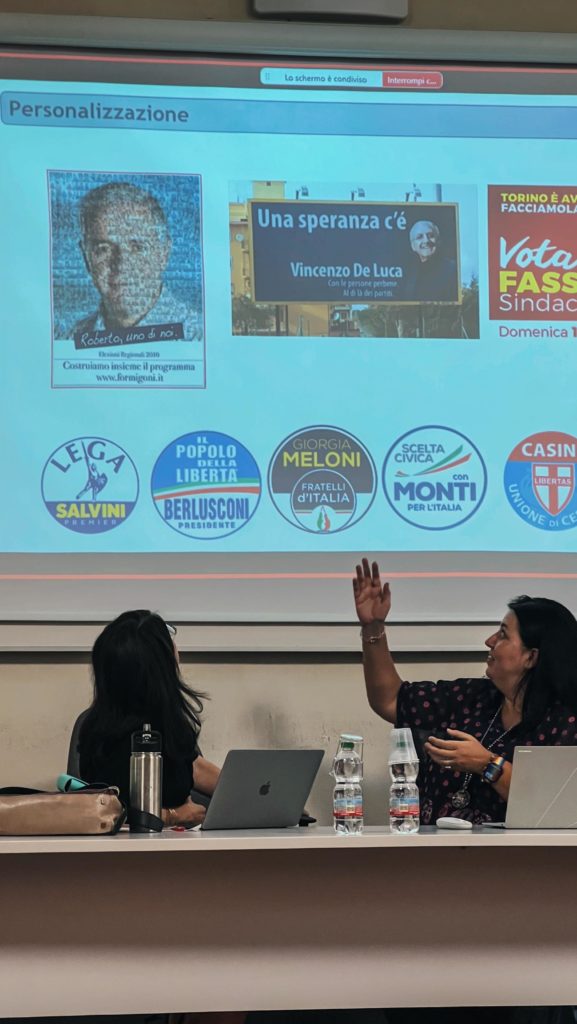On Friday, June 20th, the last seminar of the first year of the ProStEUVa project took place. Together with Professor Roberta Bracciale from the University of Pisa, we explored the relationship between Institutions, Media, and Communication with PhD students in Theory of fundamental rights, Constitutional Justice, Comparative Law, Law and Religion.
Professor Bracciale offered a brief history of the link between institutions and media, starting with the rise of commercial television under Berlusconi, moving through the spread of social media with Facebook’s arrival in 2008 in a country still lagging behind in terms of technology, and concluding with the relationship between technology and politics through the lens of the political model known as “Grillismo”. This model, which promotes direct democracy and disintermediation, pushed all political leaders – many of whom had yet to establish a digital presence – to engage with online platforms.
PhD students had the opportunity to examine, through concrete examples, how political communication strategies have evolved over time. Initially, politicians would appear on screen speaking in refined language and responding to questions from journalists. With the fall of the First Republic, however, they began to adopt television techniques aimed at capturing audience attention, simplifying their language and appealing more directly to emotions. It was with the rise of social media, though, that a real turning point occurred: leaders could now speak directly to the public, bypassing traditional news media, while citizens could engage in the conversation and even produce bottom-up forms of communication – interacting in the same digital spaces as politicians, institutions, and celebrities. True disintermediation came with the rise of the Five Stars Movement, which bypassed traditional intermediaries – that is, political parties and the press – in favor of direct participation, constant scrutiny of elected officials, and active content creation.

Professor Bracciale then guided students through the distinction between populism as a thin-centered ideology and populism as a communication style, illustrating several strategies used by both Italian and international political leaders: emotionalization, cherry-picking, appeals to common sense, simplification, and more. She highlighted how these techniques have become standard digital engagement strategies across the political spectrum – even among parties that do not embrace populist ideologies. Populism, as a communication strategy, has effectively become endemic.
In the end, what survives is pop politics: political actors, though often far removed from people’s everyday lives, become familiar, relatable figures by adopting the dynamics and content of popular culture. They become characters people are curious about, talk about, and even find entertaining.
The seminar concluded with a discussion with PhD students.



